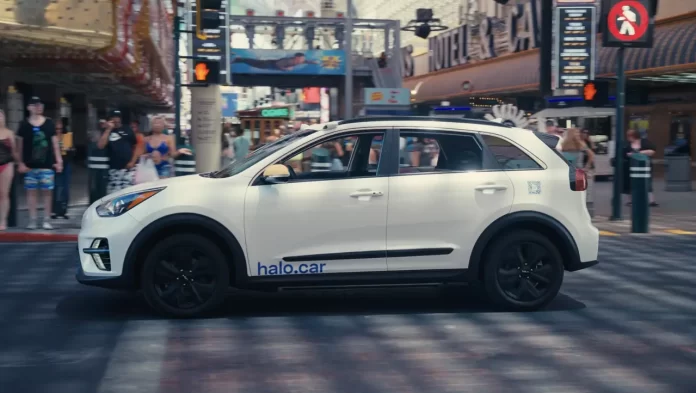Halo.Car, a provider of on-demand electric vehicles (EVs), announced the removal of safety drivers from its remote-piloted vehicles in a world-first commercial launch. The driverless launch comes following four years of testing where safety drivers were present inside Halo.Car’s vehicles during remote piloting.
Halo.Car’s mission is to rapidly accelerate the global transition to EVs with on-demand vehicles for hourly and daily use. When customers book one of Halo.Car’s EVs, the company remotely delivers the vehicle for the customer to drive. When they are finished, customers end the booking and Halo.Car remotely collects the vehicle. The company has been remote-delivering vehicles with safety drivers to customers since 2022.
From today, customers in Las Vegas can book a Halo.Car to their requested location and have it delivered without a safety driver in the vehicle.
After testing for thousands of hours, we’ve proven that our remote-piloting technology is robust enough to take the safety driver out. This commercial launch of driverless delivery is a landmark achievement not only for our company, but for the entire transportation industry. We are really pushing the boundaries of what people believed was possible.”
Halo.Car retrofits its fleet of electric vehicles with cameras, modems, antennas, and other custom-developed components to enable remote driving of the vehicle. Trained ‘remote pilots’ at a Halo.Car operations center use video and sensor data streamed from the vehicle to remotely drive the vehicle. When they complete a remote delivery, they hand over control of the vehicle to the customer and connect to the next vehicle awaiting remote delivery or collection.
The vehicles are remote-piloted over T-Mobile 5G, with AT&T and Verizon used for additional stability. Halo.Car has developed proprietary algorithms so the data streams use the strongest network connection available at any given time. This allows for reliable, high-quality streaming and low latency.
A key technology enabling the driverless rollout is Halo.Car’s patent-pending Anomaly Detection System, which brings the driverless piloted car to a stop if it detects any connectivity issues during remote operations.
The driverless-piloted vehicles will initially be followed by a second vehicle that monitors the health of the driverless-piloted vehicle and can stop the vehicle, if needed, as well as providing support if the piloted vehicle’s safety systems bring the vehicle to a stop.
The rollout of driverless deliveries follows Halo.Car’s funding in 2022 from climatetech investor At One Ventures, with T-Mobile Ventures, Earthshot Ventures, and existing investor Boost VC also participating.
Halo.Car will offer driverless deliveries in Downtown Las Vegas initially with availability in more areas of the city in coming months. The company plans to grow its fleet in Las Vegas to hundreds of vehicles before expanding to more cities in 2024.

